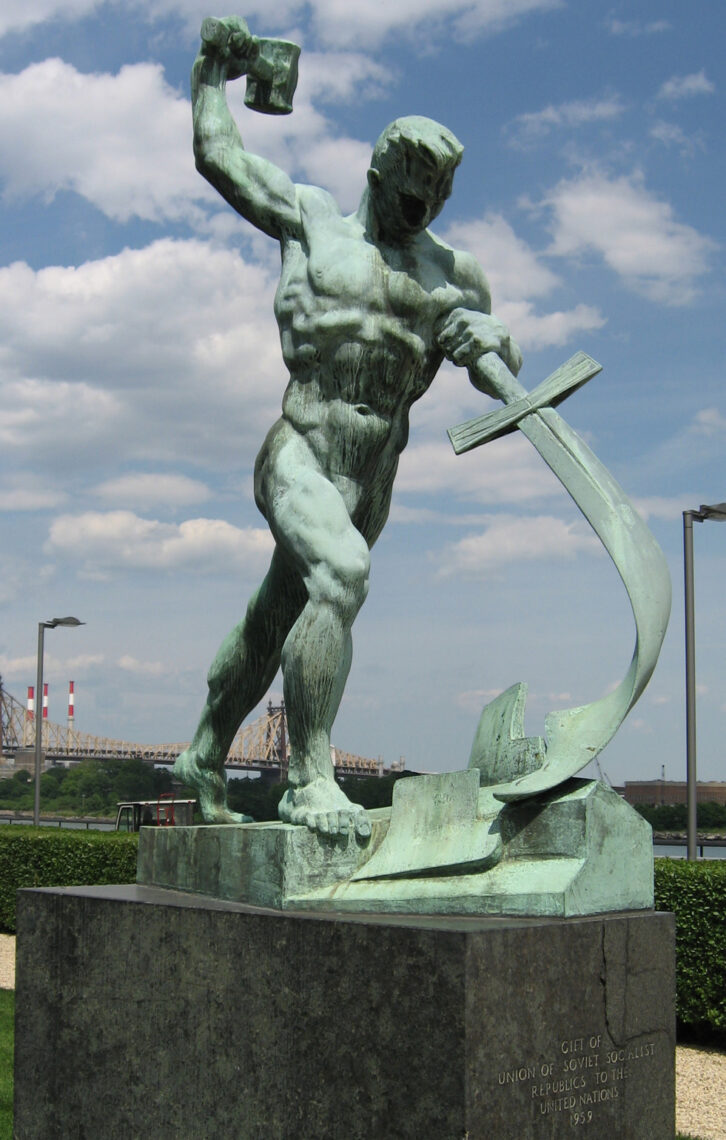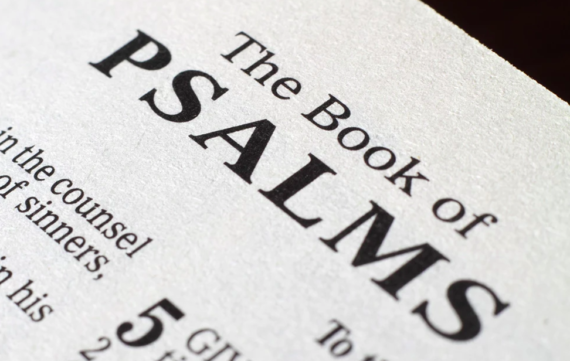Some things are easier understood than explained, and I fear that the idea behind this psalm is one of those things. You either understand or you do not. Explanation rarely helps.
Sometimes there is more to a place than the place. Sometimes a given place is more important as a symbol of something else than it is as a place to work or eat or sleep.
The symbolic importance of places was brought out negatively on September 11, 2001. The attack on the Pentagon made some degree of sense in practical terms. But the attack on the twin towers was an attack on a symbol. Aside from the business carried on there, the towers were a symbol of world capitalism — a more vulnerable symbol than the stock exchange.






To certain generations of Americans, West Virginia, Colorado, or the Rocky Mountains were symbolic of something that went far beyond the places themselves. For others there are other symbolic places: Flanders, Normandy, Ellis Island, Pearl Harbour. For many Africans, Robben Island is more than a place. It is an important symbol of the long struggle against Apartheid.
Within the Bible there are a number of places that have symbolic meaning. Telling people to “Come out of Babylon” (Zech 2:6-7; Rev 14:8) is not always a literal geographic term. Isaiah calling people, “Rulers of Sodom” (Isa 1:10) is not literal.
Likewise, Zion is a place, but it is far more than a place, it is symbolic of dwelling in the presence of God.
City of God
Zion is representative of the city of God.
“On the holy mount stands the city he founded; 2 the Lord loves the gates of Zion more than all the dwelling places of Jacob. 3 Glorious things of you are spoken, O city of God.” (1-3)
God is not confined to a place, but it was here that he made known so much about himself, on so many occasions. This is why the Bible ends with the picture of a new, a spiritual, Jerusalem (Rev 3:12; 21:2).
City of all nationalities
Unexpectedly, it is a city of all nationalities.
“Among those who know me I mention Rahab and Babylon; behold, Philistia and Tyre, with Cush— “This one was born there,” they say. 5And of Zion it shall be said, “This one and that one were born in her”; for the Most High himself will establish her. 6 The Lord records as he registers the peoples, “This one was born there.” (4-6)
I say “unexpectedly” because they, and we, tend to not think in those terms, but God has been saying it right along. We think of God’s interest in all people as a New Testament teaching (Acts 10:34; Rev 5:9). But it is found throughout the Bible (Gen 12:3; 14:18; Isa 2:2-3).
Source of blessings
Zion, if understood as the dwelling of God, is the source of all true blessings. “Singers and dancers alike say, ‘All my springs are in you.’” (7)
All that we have that really matters is related in one way or another to Jerusalem. Our gospel was accomplished and first proclaimed there. Christ’s primary work was accomplished there. And it is in his redeeming work that all God’s promises are realised (2 Dor 1:20).
What about the many ‘ordinary’ blessings we enjoy? In the hymn “for the Beauty of the Earth” we rightly celebrate all that God has given and praise him for it. Let us consider for a moment the third verse of that hymn.
“For the joy of human love, brother, sister, parent, child, friends on earth, and friends above, for all gentle thoughts and mild, Lord of all to you we raise, This our sacrifice of praise. – Folliott S. Pierpoint-
In many cases, without the message that came out from Jerusalem, our home lives would have been very different. The joy of human love would have been little known.
Virtually all the good we know in our society is today connected in our minds with secular institutions. But nearly all of it traces back to events in Jerusalem in the distant past. We credit our governments, or the UN, with the degree of peace we enjoy. But that organisation was inspired by the knowledge its founders had of the biblical message, as even the sculpture at the entrance (donated by an officially atheistic government) attests.1

If you are musical and have access to a psalter, try singing this psalm. Or sing John Newton’s paraphrase of it (“Glorious Things Of Thee Are Spoken”). Or listen to recordings of the psalm being sung.2 Sometimes the meaning goes beyond the words and can best be heard in song.
Psalm 87 is indeed an odd psalm. Perhaps we have not done it justice, but if it causes us to think back before we move forward, it will have done us good. If it causes us to look forward, to the new Jerusalem, that will be even better.
1 The bronze sculpture “”Let Us Beat Our Swords into Ploughshares,”” was created by Soviet artist Evgeny Vuchetich, and presented to the United Nations on 4 December 1959 by the Government of the USSR.
2 https://www.youtube.com/watch?v=nVyeGVxmv7E https://www.youtube.com/watch?v=ot_Irw2aH0M

